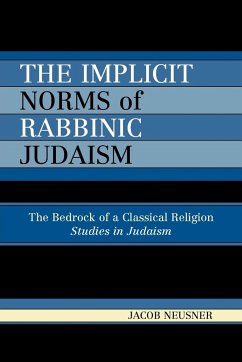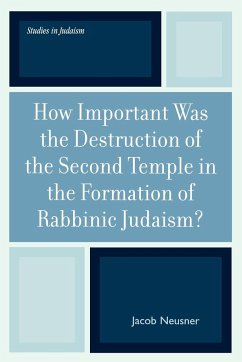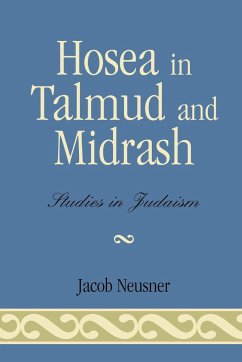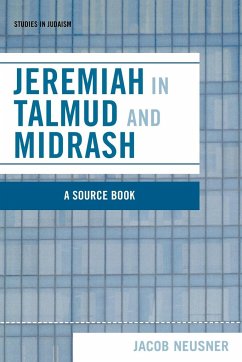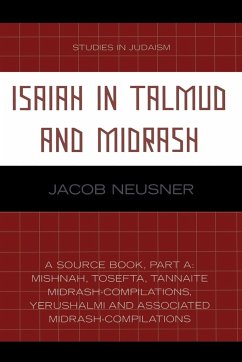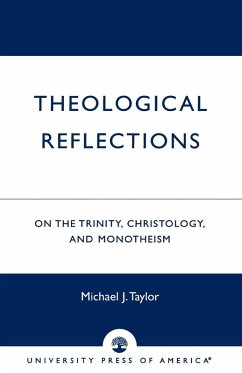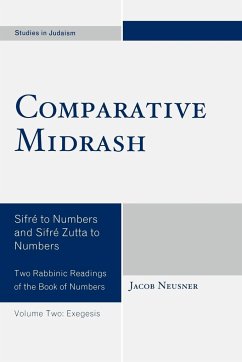
Theological Foundations of Rabbinic Midrash
Versandkostenfrei!
Versandfertig in 1-2 Wochen
73,99 €
inkl. MwSt.

PAYBACK Punkte
37 °P sammeln!
The Rabbinic Midrash, founded on a theological system and structure, is comprised by active category formations that turn facts into knowledge and knowledge into propositions of a theological character. This work defines the principal parts of the theological system that animated the Rabbinic sages' encounters with Scripture as embodied in the Rabbinic Midrash, and shows how these parts form a cogent theological system.



